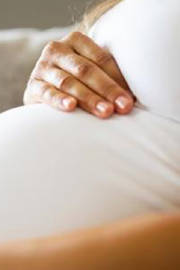
Dengue fever during pregnancy: How it affects the mother and her unborn child
Posted 03 Sep 2019 | Source: www.timesnownews.com
Key Highlights
- Dengue fever, also known as breakbone fever, is caused by any one of the four types of dengue viruses transmitted by Aedes mosquitoes
- Dengue infection during pregnancy can be dangerous as there are chances of transmitting the virus from the mother to the unborn baby
- There are many things an individual can do to avoid getting dengue and other mosquito-borne diseases
New Delhi: With the monsoon season in full swing, various states across the country are grappling seeing a spurt in cases of dengue and other mosquito-borne diseases. According to reports, as many as 9,374 cases of dengue have been reported in the state of Karnataka till August 26. Dengue fever, also known as breakbone fever, is caused by any one of the four types of dengue viruses transmitted by Aedes mosquitoes. It is one of a few vector-borne infections that can be especially dangerous for pregnant women and babies.
Being infected with dengue during pregnancy, particularly during the last three months, can be threatening because there are chances of transmitting the virus from the mother to the developing baby. This can result in harmful effects such as stillbirth or premature birth, etc. In an Exclusive Interview with Salome Phelamei of Times Now Digital, Dr Swati Rajagopal, Consultant, Infectious Disease and Travel Medicine, Aster CMI Hospital, tells us why it’s important to stay safe from dengue during pregnancy and what can be done to prevent this disease. Below are excerpts from the Interview.
Salome: What is dengue? How to tell if someone has dengue fever?
Dr Swati Rajagopal: Dengue is a viral infection transmitted by the bite of the infected Aedes aegypti mosquito.
Like most viral fevers, patients may have high-grade fever associated with headache, retro-orbital pain or pain behind the eyes, severe myalgia or muscle pain, arthralgia or pain in the joints, fatigue, nausea, vomiting or a rash. Other warning signs of dengue are severe abdominal pain, exhaustion/irritability/restlessness, reduced urine output, bleeding tendencies, dehydration, etc.
If symptoms such as above mentioned are noticed, you should see a doctor for a test to diagnose or rule out dengue. Blood tests like Rapid card test or Elisa methods can help diagnose dengue.
Salome: How does dengue affect the health of a pregnant woman and her unborn baby?
Dr Swati Rajagopal: The clinical manifestations, treatment, and outcome of dengue in pregnant women are similar as in non-pregnant women. However, the impact of dengue on pregnancy can exist as:
- Adverse pregnancy outcomes such as pre-term birth or low birth weight babies.
- Risk of vertical transmission (risk of transfer of the virus from mother to child) - this is well established with dengue during the perinatal period (late pregnancy).
- Severe bleeding, which may complicate delivery (especially if surgical procedures are needed or performed on pregnant women at the time of severe thrombocytopenia).
Salome: How is dengue treated during pregnancy?
Dr Swati Rajagopal: Treatment, which is in the form of fluids and supportive care, for dengue focuses on relieving the symptoms. There are some challenges associated with dengue during pregnancy. For instance, vomiting could be a concern - dengue could aggravate vomiting even in normal pregnancy. Inevitable delivery during the critical phase of dengue (plasma leakage and marked thrombocytopenia) could lead to bleeding. Challenges in monitoring and management of intravenous or oral fluids in pregnancy could be different as compared to non-pregnant women. Yet, aggressive management of blood products and fluids would hold the key.
